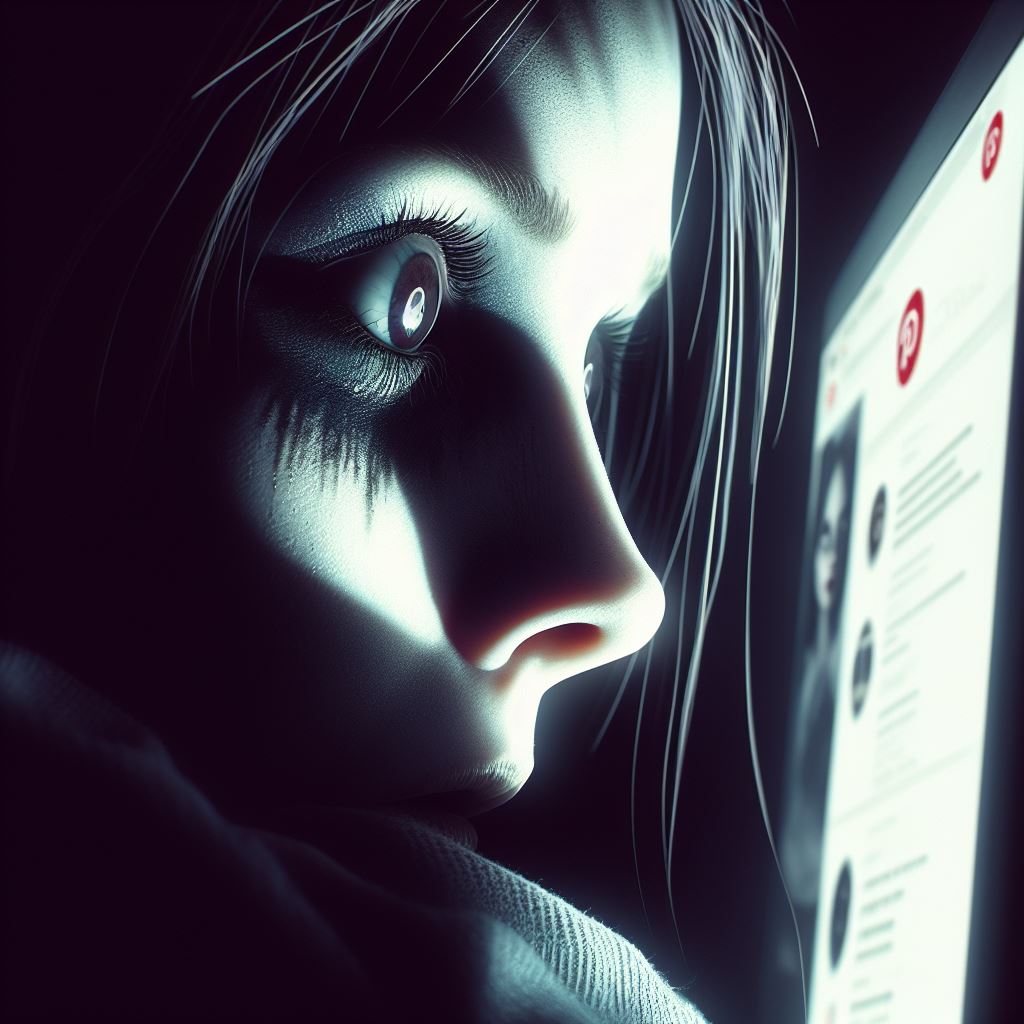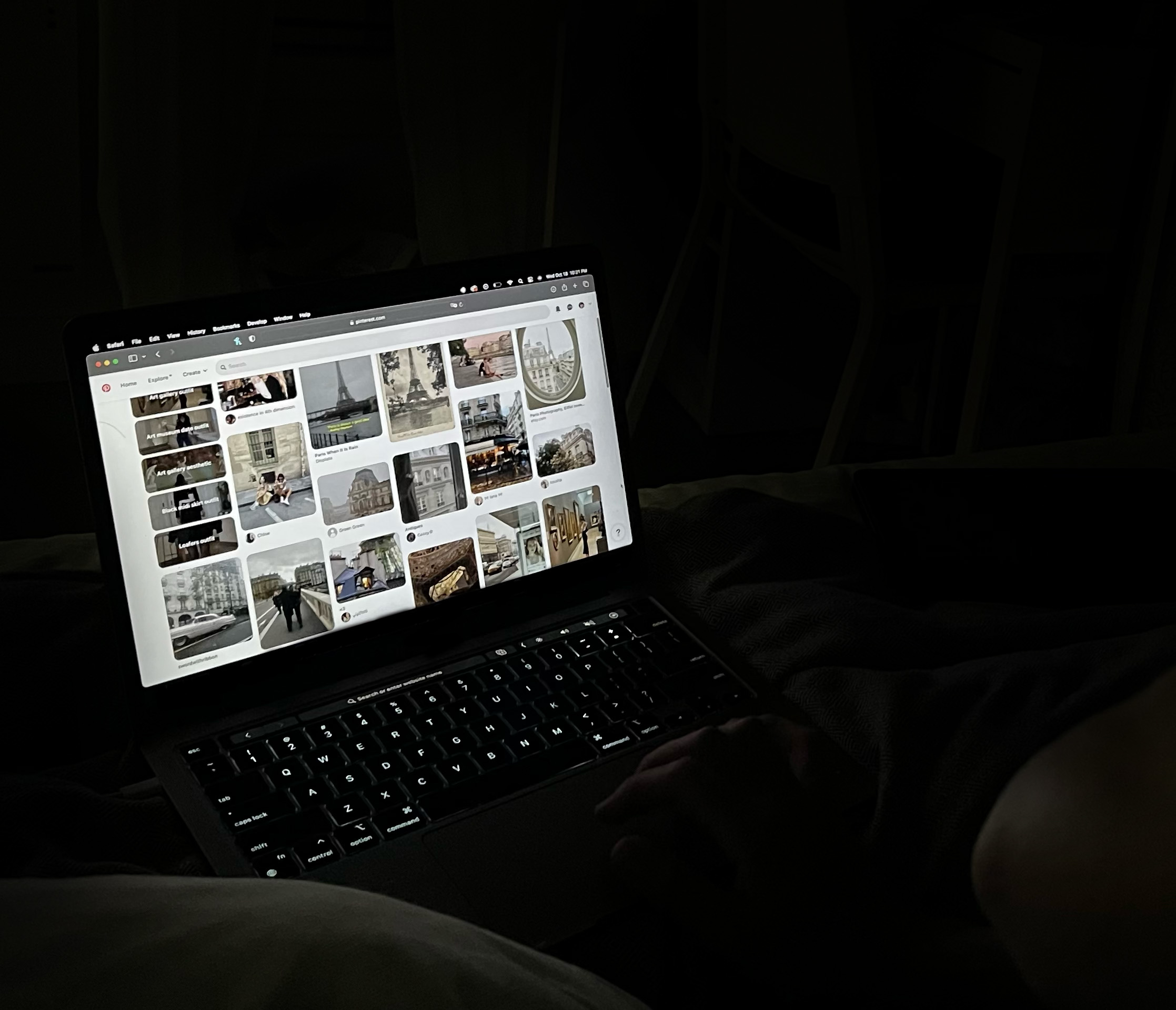Peak Pinterest: the Platform of Our Generation

The world has been taken over by social media. One swipe and two taps open any social media app on the device latched to our hands. Perfection is portrayed on billions of screens worldwide, shedding positivity while negatively affecting the lives of many users. We all know Instagram, Snapchat, TikTok, X, and Facebook. But there is another platform which recently regained its reputation and place within this group of “Social Supers.” Pinterest to some may be considered a dead platform; connotated with DIY crafts and cooking recipes. Yet, to Gen Z, this platform is a manifestation tool highlighting everything and everyone. From outfit inspo to art and perfect lifestyles, Pinterest is the place to be when it comes to finding what you didn’t know you needed.
To many, Pinterest became a main source of media consumption in 2020 generating $1.69 billion in annual revenue, an increase of 48.27% over the previous year. With extra time replacing what used to be busy schedules, media consumption was at an all-time high. Isabella Logue started using Pinterest regularly in 2020, “That was when my grind started,” says Logue. To Logue, Pinterest is especially important to the way she sees the world.
Miranda Itskovich has been dedicated to curating her Pinterest every day for the past four years.
“Every day I log into Pinterest like it's my job like I'm getting paid for it,” Itskovich says.
Pinterest works by allowing its users to create boards. A collective of “pinned” images that resonate with things that you can relate to. Whether that be an article of clothing, a hairstyle, jewelry combinations, beautiful destinations, or a work of art. Pinterest then utilizes your pins and builds a feed with images and aesthetics that resonate. In turn you get an array of curated media that fits a perfect perspective of how you want your world to be.
Logue and Itskovich are both AUP students whose lives in Paris are pinned, reposted, and romanticized on Pinterest. From the beautiful architecture of Parisian buildings, stereotypical Parisian fashion, and the iconic cliché of smoking a cigarette at a café. Paris on Pinterest is a world of its own. In Logue's mind, she compares something she sees as beautiful to what it would look like on Pinterest immediately.
“Half the photos I take, even if it's just a street, I'm thinking, 'how would I see this on Pinterest and how would I recreate it?'", says Logue, "Everything is Pinterest-based in my head. My standard of perfection is Pinterest. Pinterest is life".

To Itskovich, “There's little parts of Paris that, when you crop out the dirty ass floor and the rats, it’s like ‘look how beautiful I could put this on Pinterest right now'". Romanticizing the aspects that make life beautiful can have a positive effect. Afterall, that’s what social media’s main foundation evolved to. But with public users, and the niche threading within Pinterest’s algorithm; this hyperfixation on perfection can also be a detrimental issue.
When looking at the statistics behind social media usage and teens, 46% of users said social media negatively impacted their mental health while 14% were positively affected. The rest were neutral. The media being consumed today is a highly curated “perfect” concept that others feel they must follow. Influencers undergo cosmetic procedures, and others reshape their figure in Photoshop. To follow these standards of perfection one must compare their own situations against these false realities.
Logue believes Pinterest to be the healthiest platform on the market. She argues not being forced to focus on a specific person taking over your screen, you are allowed to take in a range of people laid out on one page. Focusing on one person at a time can deminish an open minded state. Logue also finds Pinterest to be a positive space to share creative ideas as compared to Instagram where people are only posting their curated selves.
Logue also finds, the romanticization of Pinterest can offer a false narrative. When asked to talk about her life in Paris compared to what she sees on Pinterest, Logue's approach was, “Pinterest doesn’t show you how bad Paris smells sometimes. Or how hot it gets. You are just getting romanticized snapshots of aesthetics, but I don’t see a problem with that.” Logue feels that the romanticization possibilities of Pinterest gave her something to look forward to. Yet that’s not always the case.
When Itskovich was asked about Pinterest, she shed light on an issue few immediately perceived. Of course, Pinterest is a space with various niches based on specific tastes and algorithms. But these algorithms can lead one into a deep rabbit hole of romanticized eating disorders and body image.
“It’s really easy to slip down a 'thinspo' path and suddenly you are getting extremely, extremely skinny. Like just bones,” says Itskovich.
These issues derived from the romanticization within Pinterest can have strong consequences on users. “Thinspo” creates an idealised image of disordered eating. From tips and tricks, how to's, and shame against anyone recovering from "thinspiration." Many users especially those who are young and still in development are exposed to "thinspo." Questioning their own image in comparison to what they see in the already romanticized perfect world depicted on all platforms. The challenge lies in offering a realistic approach to a place already densely populated by a public who glorifies what is unrealistic.
This glorification of mental-illness is one that is monitered by social platforms. From banning the word "Thinspo", blocking accounts dedicated to sharing "thinspo", and placing warnings when looking up "thinspiration." Although these are steps anyone would take to avoid further negative impact, the public gets around. From changing the spelling, utilizing symbols, and even emoji's to trick the system.
Social media is a tool that is both beneficial and detrimental to our livelyhoods. We all enjoy sharing the moments of our lives that feel just right. But "just right" is not always right. Pinterest can inspire us to fullfill an idea of perfection we create. starting with pinning posts to a board, then recreating that post on instagram stories. Yet a session of the "endless scroll" might take you into a path of nothing but consequences. Romanticization can bring light into our lives, but one persons light may be another persons darkness.
Engaging in thinspiration can negatively impact a persons mental health. If you or a loved one are impacted by the negative effects of social media you are not alone, there are plenty of resources you can look to.





